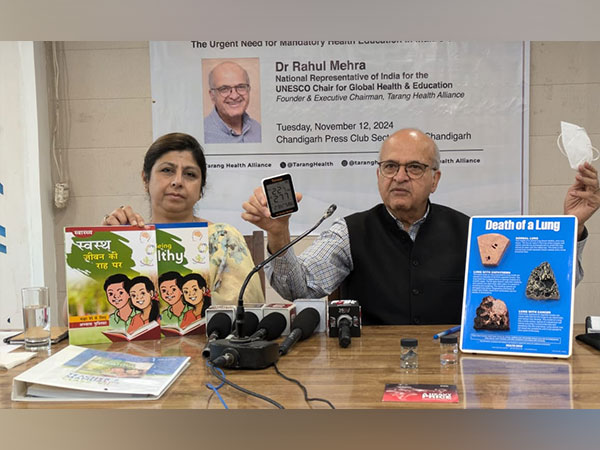Pioneering Health Education: Haryana's Response to Air Quality Crisis
As air quality worsens in Northern India, Dr. Rahul Mehra advocates for mandatory health education for children to tackle health risks. Dr. Mehra's Tarang Health Alliance has launched a pilot program in Haryana, aiming to embed preventive health education in schools and develop a healthier generation prepared for future challenges.

- Country:
- India
As air quality in Northern India reaches alarming levels, leading health experts are urging immediate action to address potential health hazards, particularly for children. Dr. Rahul Mehra, a global scientist and representative for UNESCO's Chair in Global Health & Education, emphasizes Haryana's opportunity to implement sweeping policy reforms that mandate health education for young students.
"There is a pressing need for health education to be integrated into school curriculums," asserts Dr. Mehra. Under his guidance, the Tarang Health Alliance, in collaboration with Fijeeha, organized a media workshop in Chandigarh, highlighting the critical role of compulsory health education in countering the effects of pollution. He draws a comparison between Haryana and global cities with far lower Air Quality Index (AQI) levels, advocating for urgent educational interventions.
Dr. Mehra, with an extensive background in biomedical research, underscores the importance of transitioning from treatment-based to preventive health education—an initiative that has shown positive initial outcomes in Tarang's pilot programs across schools in Haryana, NCR region, and beyond. Partnering with Haryana's government, this initiative aligns with broader welfare strategies under Shri Nayab Singh Saini, aiming for a statewide and eventually nationwide commitment to ingraining health education in schools.
(With inputs from agencies.)










